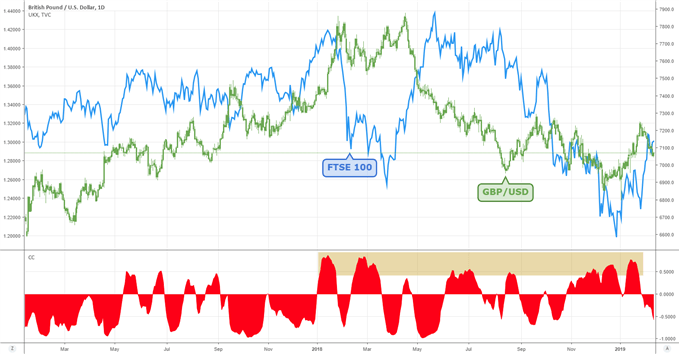
Brexit will disrupt the UK significantly with its departure from the EU customs union. This will have a domino affect on various aspects of the UK economy, however there are potential positives that could be fashioned out of this deal. With these interruptions, traders can look to pounce on possible trading opportunities in the forex market.
This article will outline the concept of customs unions, implications of the UK leaving the EU as well as consequential trade ideas for FX traders.
Types of Custom Unions and What’s at Stake
Brexit discussions often refer to customs unions and the single market. These two terms are essential to understand before delving into Brexit talk.
Currently, the UK is a member of both the customs union as well as the single market. Specifically, the customs union refers to an association of member states that have agreed upon trade pacts which underline no restrictions or tariffs on trade. In the single market, members resolve to eradicate all barriers to trade, services, people and capital. The major difference being the movement of people.
This reluctance of Britain to continue to allow free flow of people has contributed to a potential “no-deal Brexit” decision by the EU. A “no-deal” Brexit simply refers to the UK leaving the EU without any trade/relationship agreements between the two parties on March 29, 2019.
See our Brexit Timeline to learn how negotiations have impacted the financial markets.
Implications of Brexit and Leaving the EU Customs Union for Traders
The EU customs union is the largest in the world, meaning for all participant countries there are no customs, duties, quotas or declarations as goods move around these member states. With Brexit, the UK is looking to exit the EU customs union, and there are potential pros and cons for Britain’s economy:
PROS:
- Initiating new trade partners which can create more jobs and opportunities.
- Reduced cost as Britain would no fund the EU budget.
- Greater control for UK government, as the EU currently has influence over some aspects of Britain’s affairs. All future decisions will come solely from UK parliament.
- Under current EU regulation, there is no prohibition of immigrants from member states. Under Brexit, the UK will have control over immigration.
- Britain will validate itself as an independent country.
CONS:
- Extra fees at border checks, which will lead to slower arrival on imports to the UK.
- Delayed production and consequently higher cost of goods.
- Firms may leave the UK, as the UK will no longer be the gateway to Europe which will result in job losses.
- Customs backlogs.
- Some analysts believe the UK economy will shrink along with a depreciation of pound sterling. Whilst others portray the view that the UK financial system is adequately equipped to deal with a “no-deal” Brexit.
The pros and cons listed above are all contributing factors as to how to approach the trading environment, particularly regarding the UK currency and economy. There is uncertainty at this point; until a resolution is reached between Britain and the EU regarding the customs union. Some inferences can be made from the current situation with regards to the effects on the pound sterling and the FTSE 100 as discussed below.
Pound Sterling
If a “no-deal” Brexit comes to light and the UK leaves the customs union, the pound will most probably depreciate alongside an economic slump. Some analysts suspect a deterioration of up to 20%. This may not be as bad as it seems, as an exhausted pound could lead to a pro-trade environment with British goods becoming more competitive globally, whilst those in the EU will be relatively weaker.
This fall in pound sterling could push up inflation, making everyday goods more expensive, but business owners and many politicians are looking to capitalise on Brexit, rather than focus on the negatives.
The FTSE 100 index has been taking strain lately mainly due to Brexit negotiations with UK equities lagging the global benchmark. Fundamentals have pointed to UK equities trading at a discount to global equities at levels similar to that of the 2008 financial crisis.
This does not mean UK equities are being bought up just yet as the likelihood of a no-deal Brexit increases. This could mean traders are overweight on UK equities. The majority of traders seem to be biding their time before committing to the FTSE 100 index. A no-deal Brexit would be favoured by the market simply on the clarity going forward.
It may be worth noting that the domestically oriented FTSE 250 may well out-performthe FTSE100 - the FTSE100 being dragged lower by a stronger GBP. The FTSE250 however, should benefit from reneweddomestic optimism and potential GBP inflows from abroad.
GBP/USD vs FTSE 100:
Since the Brexit referendum we have noticed a predominantly inverse relationship between GBP/USD and the FTSE 100 index (when GBP strengthens, the FTSE 100 falls and vice versa). However, recently this association seems to have been dying away.
The chart below shows an increase in positive correlation as highlighted by the shaded yellow box. The frequency of positive correlation is clearly seen to have increased over the last few months.

This could mean traders looking to protect against Brexit risk by going long on UK equities may have to endeavour with other investment options. There are other contributing factors to this change, mainly the enduring threat of the US-China trade war. This does not mean this linear relationship is here to stay, but rather something to keep in mind prior to locking into a trade.
The discussed factors and arguments are key to understand how different outcomes can lead to varying scenarios. Customs unions are crucial to the Brexit effect, as the way Brexit transpires will affect the movement in the financial market.
See our Brexit Effect on Pound and UK Stocks under different scenarios of Brexit.
Further reading and recommendations:
- Stay up to date with the latest news and events by monitoring our economic calendar.
- Our analytical and educational trading webinars cover various topics including the latest Brexit updates.
- Sign up for our free GBP forecast produced by top analysts at DailyFX.
- Keep abreast of the latest FTSE 100 news and analysis.
- At DailyFX we researched over 100,000 live IG Group accounts to find out the secrets of successful traders and published the findings in our Traits of Successful Traders guide.







